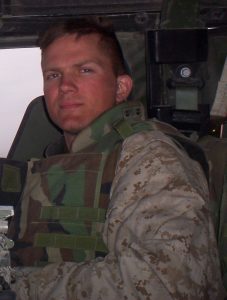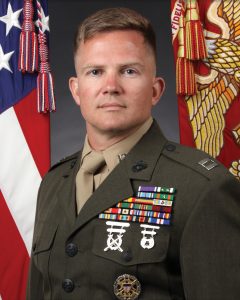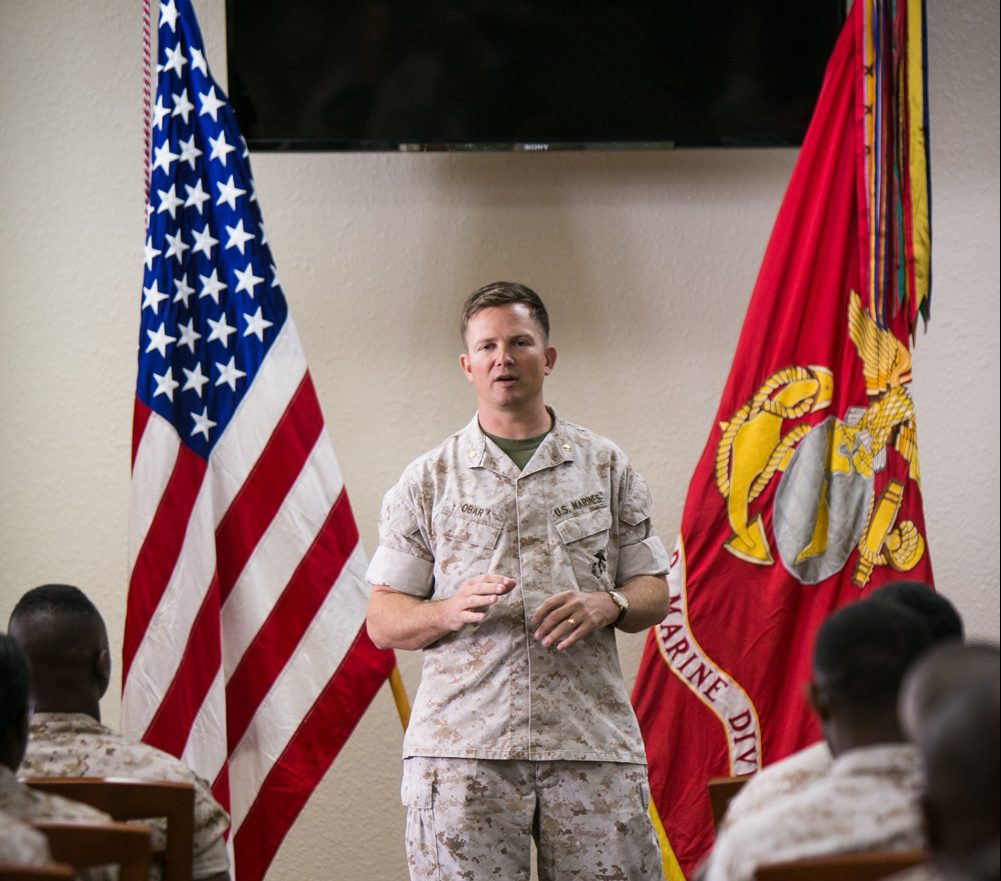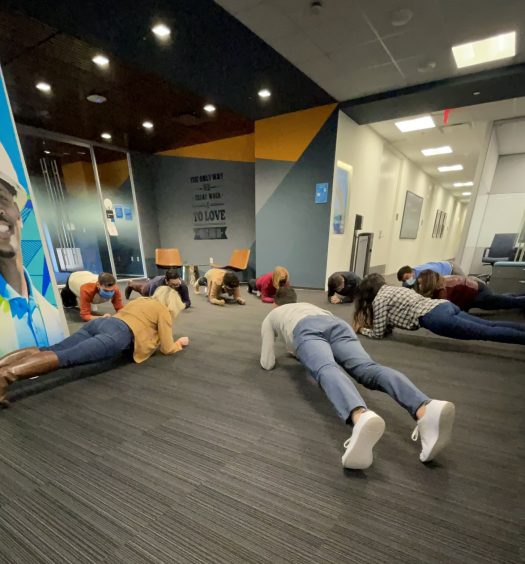 Sourcing Manager, Greg Obar, came to AT&T after 24 years of military service. During that time, he built up a variety of skills that are invaluable in his work today. “The skills I acquired during my tenure in the Marine Corps have had a profound impact on my professional and personal life,” he said. “Notably problem-solving, leadership, teamwork, and empathy are among the skills that I carry forward from my military experience.”
Sourcing Manager, Greg Obar, came to AT&T after 24 years of military service. During that time, he built up a variety of skills that are invaluable in his work today. “The skills I acquired during my tenure in the Marine Corps have had a profound impact on my professional and personal life,” he said. “Notably problem-solving, leadership, teamwork, and empathy are among the skills that I carry forward from my military experience.”
Obar is responsible for establishing and maintaining relationships with suppliers nationwide. “My overarching goal,” he said, “is to contribute to AT&T’s business success and operational objectives while aiding the economic growth of companies and communities.”
Obar’s work is critical to not just the success of our company, but in upholding our core values of making a difference and amplifying small business voices. Coming from a military background, these same core values especially resonated with him.
Lessons Learned in the Military
 “AT&T’s company culture closely resembles the military’s,” he said. “They put emphasis on recognizing and rewarding excellence, innovation, and efficiency. Unlike the military, there are no mandatory early morning physical training session, however!”
“AT&T’s company culture closely resembles the military’s,” he said. “They put emphasis on recognizing and rewarding excellence, innovation, and efficiency. Unlike the military, there are no mandatory early morning physical training session, however!”
Obar enlisted in 1991 as an infantry mortarman. He was initially motivated by the camaraderie and merit-based culture that the military offered. “It provided a sense of belonging and the opportunity for everyone, regardless of background, to compete and excel,” he said.
Obar held various roles throughout his career, including infantry, embassy security, Pentagon security, military intelligence, and personnel operations management. These roles included deployments around the world to Iraq, Saudi Arabia, Myanmar, and Japan. He retired from active duty as a Major in 2015. Each of these roles would ultimately bring him closer to the type of work he does today as a part of the AT&T team.
Obar appreciated that there were abundant growth opportunities and the way departments cooperated. The blend of personal development and working towards a common good were familiar to him. “Much like the military,” he said, “employees are encouraged to explore career paths, aligning their skills with the areas where they can make substantial contributions and reach their full potential.”
Advice for Post-Military Careers
 “By following these lessons learned,” Obar said, “military members and veterans can position themselves for a successful transition into their civilian careers.”
“By following these lessons learned,” Obar said, “military members and veterans can position themselves for a successful transition into their civilian careers.”
- Leverage your network: Friends and family can be instrumental in providing support and potential opportunities.
- Showcase your value: How your military experience translates to a civilian career may not be immediately apparent to a hiring manager. Articulate your specific skills and abilities in a way that aligns with the needs of a civilian employer.
- Utilize LinkedIn: Be sure your LinkedIn profiles describes your experience in language that is understandable to civilians.
- Know your market value: Do your research and understand your worth in the civilian job market compared to the military.



